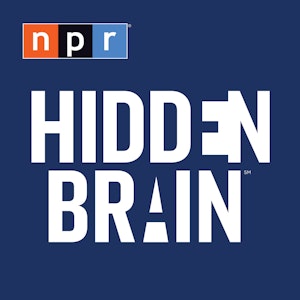Shankar Vedantam
Podcasts
Stories
-
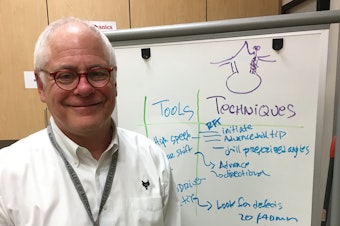
When Things Click: The Power Of Judgment-Free Learning
There can be a lot of psychological noise involved in teaching. But what it we replaced all that mental clutter...with a click? This week, we bring you a 2018 episode exploring an innovative idea about how we learn. It will take us from a dolphin exhibit in Hawaii to a top teaching hospital in New York. It's about a method to quiet the noise that can turn learning into a minefield of misery.
-
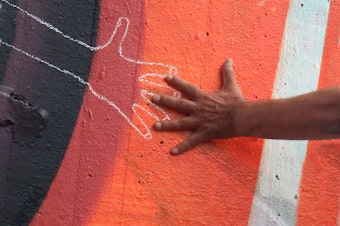
Secret Friends: Tapping Into The Power Of Imagination
Where is the line between what is real and what is imaginary? It seems like an easy question to answer: if you can see it, hear it, or touch it, then it's real, right? But what if this way of thinking is limiting one of the greatest gifts of the mind? This week, we meet people who experience the invisible as real, and learn how they hone their imaginations to see the world with new eyes.
-
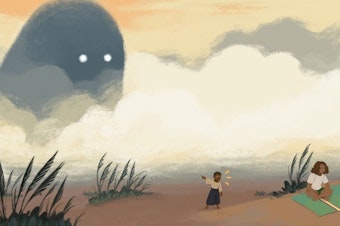
How To See The Future (No Crystal Ball Needed)
When disaster strikes, we want to know, who screwed up? This week we explore the psychology of warnings: Why some warnings get heard, and why some of us are better at seeing what lies ahead.
-

The Story Of Money: How Human Behavior Shapes Economies — And Vice Versa
What's the point of money? The answer might seem obvious: we need it to get paid for our work, and to buy the things we need. But there's also a deeper way to look at the role of money in our lives.
-
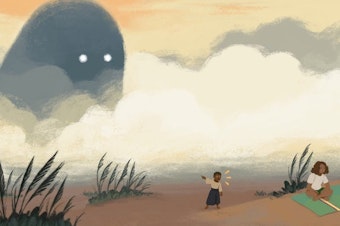
The Cassandra Curse: Why We Heed Some Warnings, And Ignore Others
After a disaster happens, we want to know whether something could have been done to avoid it. Did anyone see this coming? Many times, the answer is yes. So why didn't the warnings lead to action? This week, we revisit a favorite 2018 episode about the psychology of warnings. We visit a smelly Alaskan tunnel, hear about a gory (and fictional) murder plot, and even listen to some ABBA.
-

Emotional Currency: How Money Shapes Human Relationships
What's the point of money? The answer might seem obvious: we need it to get paid for our work, and to buy the things we need. But there's also a deeper way to look at the role of money in our lives. This week we explore an anthropologist's take on the origin story of money. What if the cash and coins we carry are not just tools for transactions, but manifestations of human relationships?
-

On The Knife's Edge: Using Therapy To Address Violence Among Teens
What would drive someone to take another person's life? When researchers at the University of Chicago asked that question, the answer was a laundry list of slights: a stolen jacket, or a carelessly lobbed insult. It made them wonder whether crime rates could be driven down by teaching young men to pause, take a deep breath, and think before they act. In this 2017 episode, we go inside a program that teaches Chicago teens to do just that. We also explore what research has found about whether this approach actually works.
-
How Does The Way You Feel Shape The Way You Think About Your Life?
A recent study found students may inadvertently choose their college major, in part, based on how tired they were in the subject's introductory course — especially if it was an early morning class.
-

Creatures Of Habit: How Habits Shape Who We Are — And Who We Become
At the beginning of the year, many of us make resolutions for the months to come. We resolve to work out more, procrastinate less, or save more money. Though some people stick with these aspirations, many of us fall short. This week, psychologist Wendy Wood shares what researchers have found about how to build good habits — and break bad ones.
-
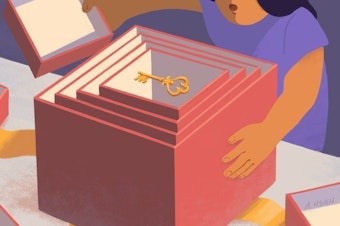
Spoiler Alert! The Psychology Of Surprise Endings
Why do we fall for surprise endings? It turns out that our capacity to be easily fooled in books and movies is made possible by a handful of predictable mental shortcuts. In this 2018 conversation, we talked with Vera Tobin, one of the world's first cognitive scientists to study plot twists. She says storytellers have been exploiting narrative twists and turns for millennia — and that studying these sleights of hand can give us a better understanding of the contours of the mind.
